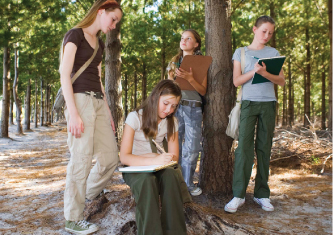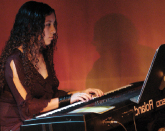 |
|
 |

Exploring the Art of Storytelling When we think of literacy, we often imagine students reading books, engrossed in someone else’s story. Anyone who has heard students’ lively chatter at an afterschool program knows that students have their own stories to tell. Most are eager to share stories about school triumphs, family fun, sports, pets, and anything else that captivates their interest. If you’re not sure how to direct a group of students buzzing with excitement, don’t worry about quieting them. Have them write their stories down. Writing does more than provide a creative outlet; it also boosts literacy skills. Afterschool programs provide great opportunities for students to practice writing. Moreover, engaging activities and regular practice tend to increase students’ desire to write. Consider some of these ideas when you have students write:
Writing in afterschool can be fun. It is a promising practice, an afterschool instructional strategy with evidence suggesting links to student achievement. More information about using writing activities can be found in the literacy section of the Afterschool Training Toolkit. The Northwest Regional Educational Laboratory developed the content for the literacy section of the Afterschool Training Toolkit.
|
SEDL Center for Quality Afterschool helps state education agencies and local practitioners develop high-quality programs for academic enrichment as well as youth development activities. |

| 
Using the Afterschool Training Toolkit for The Afterschool Training Toolkit professional development sessions that were offered this summer were so popular that SEDL is offering them again. This 2-day training session will be held in Austin, Texas, on January 14–15, 2009. Space is limited, so register now! |

|
Voices Breaking Boundaries' Spoken Word Club
|
 |
 |
 |
||||||
|
|
SEDL Virtual Academy for Afterschool |
|
||||||
This email was sent by: Editor: Laura Shankland
|
You are welcome to reproduce issues of AfterWords and distribute copies at no cost to recipients. Please credit SEDL as publisher. Link to PDF versions of AfterWords is available here. For additional uses, please fill out and submit a copyright request form. Copyright © 2008 by SEDL. |


